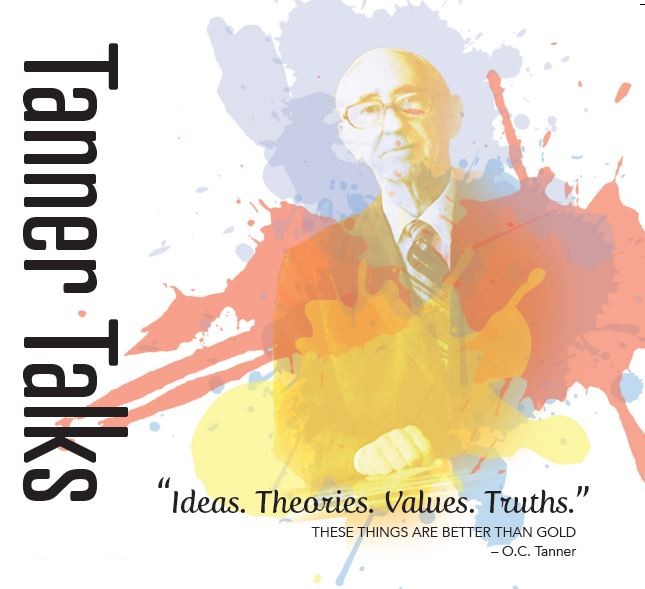Tanner Talk Series honors 230th Anniversary of the Bill of Rights submission
In commemoration of the 230th Anniversary of the Submission of the Bill of Rights to the States of Ratification, a Utah Supreme Court Justice and three professors spoke at the First Amendment Celebration on Sept. 25 on Utah State University’s campus.
Hosted by the Tanner Talk Series, the celebration was split up into two events at different places and times.
The first event was a panel, which included USU journalism professor Thomas Terry, Utah Supreme Court Justice Paige Peterson and University of Utah law professor RonNell Anderson Jones. The panel took place at 3:30 p.m. in the Eccles Conference Center Auditorium.
University of North Carolina Professor Donald Shaw gave a lecture at the second event, and that took place at 8:00 p.m. at the Eccles Science Learning Center Auditorium.
Each speaker at these proceedings gave their own insights of the First Amendment.
“The United States has the oldest working constitution,” Terry said after introducing himself and the rest of the guests. “The First Amendment is seen as the most important amendment in that constitution because it’s first.” He said the First Amendment isn’t the same First Amendment it’s perceived to be.
Peterson started her segment on the panel with a description of a freedom-granting constitution, only to reveal it was the constitution of North Korea. “Words may say you have freedom, but that isn’t reality without some work,” Peterson said. “To be able to criticize public officials in America is so important.” She said citizens shouldn’t take the freedoms they have for granted.
At the end of the panel, Jones focused on the assumptions Supreme Court judicials have about the relationship between the press and consumers, especially regarding the First Amendment.
“The Supreme Court has the assumption press audiences are actively seeking empirical truth. Do consumers actually want in-depth investigative reporting?” Jones said. The answer was no. “People are looking to consume information that aligns with their beliefs, or they’re looking for ‘infotainment.’ Only a small number of people have meaningful interest in news and politics.”
“I feel like I have more power since listening to the panel,” USU junior Anne Benson said after those on the panel answered audience members’ questions. “The government works to help us.” According to Benson, she learned how the First Amendment doesn’t necessarily protect the press, but it helps protect the freedoms of citizens.
USU Police Department officer Mark Robinson, who watched over Peterson while she was on campus, said, “Anyone can post things and pass it off as news, but you need to verify it.” He said news stories with incorrect facts can hurt people’s lives. According to Robinson, “The news runs what people talk about. We are snippet info kind of people.”
As a keynote speaker for the later event, Shaw shared his viewpoints on the media. He said, “The search for a factual document can be distorted by the sources we’re viewing.” According to Shaw, the new world of media is converging around us. “The media and those in power tell us what to think about. We’re in a period of rapid change,” he said.
Chuck Deakins, a USU student studying public relations, said, “I’m genuinely interested in the First Amendment. We don’t fully get the chance to understand this stuff without getting studies about them.” The best kind of citizen is an informed citizen, which was Deakins’ takeaway from the First Amendment Celebration.

